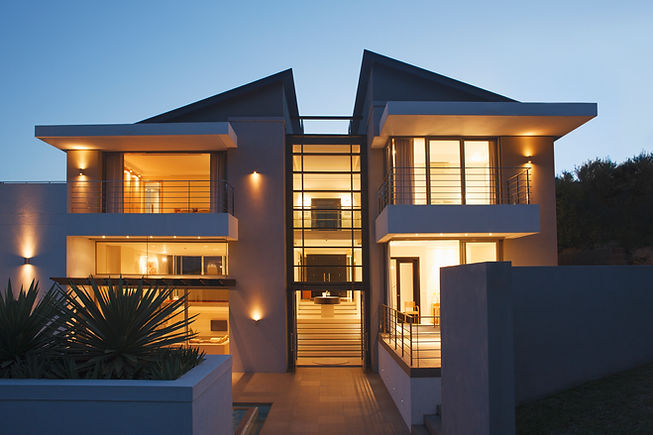
Things To Consider When Financing Your New Home
Financing, Government Programs and Closing Costs 101
There are three important factors to educate yourself about when financing your new home:
Mortgages, Government Programs, and Closing Costs.

Mortgages
Whether you are buying your first home or renewing your mortgage loan, the world of mortgages has several definitions you may not be familiar with. Once you have qualified for a mortgage, there are some basic decisions you should make: Down Payment, Amortization Period vs Term, Payment Frequencies, and Mortgage Types.
Here we will assist you to understand the language so you are able to make the right decisions.
What is a Mortgage?
A mortgage is a loan secured by real estate/property that you pay off over time. You’ll be paying back the money you borrowed plus interest and eventually you will be mortgage-free.
Down Payment

A down payment is the amount of money you put towards the price of a home. Whatever you don’t put down is the amount you are borrowing.
If you’re putting down 20% or more, that's considered a conventional mortgage.
Conventional mortgage: A mortgage that does not exceed 80% of the purchase price or value of the home, whichever is lower. Mortgages that exceed this limit must be insured against default by CMHC, Genworth or Canada Guaranty, and are referred to as high-ratio mortgages.
If you’re putting down less than 20%, that’s a high ratio mortgage.
High ratio mortgage: If a buyer's deposit is less than 20% of the purchase price (or value of the property, whichever is lower) the mortgage must be insured against payment default by a Mortgage Insurer, such as CMHC, Genworth or Canada Guaranty.
Amortization Period vs. Term
Amortization Period – The total number of years it takes to pay off your mortgage loan completely. You choose the number of years when you apply for a mortgage loan. Most first-time buyers typically pick the longest amortization period available. If your down payment is less than 20%, your maximum amortization period is 25 years. If your down payment is greater than 20%, you could have an amortization period of up to 30 years.
How does it work? The longer the amortization period, the lower your principal and interest payments will be, but overall, the amount of interest you’ll pay will be higher. With a shorter amortization period, you’ll make higher principal and interest payments, but you will pay less interest in the end.
Mortgage Term – The length of time you’re committed to a mortgage rate, lender, and associated conditions. Various financial institutions offer different mortgage terms that range from 6 months to 10 years, with 5 years being the most common option. Once your term is up, you may be able to renew your mortgage loan with a new term and rate or pay off the remaining principal.

Payment Frequencies:
Enjoy the flexibility of choosing how often to pay. You get to determine your payment schedule, from Weekly, Rapid Weekly, Bi-Weekly, Rapid Bi-Weekly, Semi-Monthly, Rapid Semi-Monthly, or Monthly.
You could link up your principal and interest payments for your mortgage loan with your pay, or opt to pay monthly or twice a month. Paying every other week might seem the same as paying twice a month, but you’ll actually be making two extra principal and interest payments a year with a biweekly payment schedule.

Mortgage Types
Fixed vs Variable Interest Rate
Fixed Interest Rate – Your interest rate will not change throughout the term of your mortgage loan, and neither will the amount of your principal and interest payments. If you're a first-time homebuyer and are happiest knowing exactly what to budget for, a fixed-rate mortgage is a wise choice.
Variable Interest Rate – the interest rate can fluctuate along with any changes in the Financial Institution Prime Rate. Your principal and interest payments will stay the same for the term, but if the Financial Institution Prime Rate goes down, more of your payment will go towards the principal. If the Financial Institution Prime Rate goes up, more will go towards interest.
If you are concerned with interest rates rising, fixed-rate mortgages are more popular as you are protected from your rate going up over the term of the mortgage. Variable-rate mortgages are more popular when interest rates are falling. If you do choose a variable rate mortgage and rates begin to rise, there is always the option to shift to a fixed rate mortgage at current rates, subject to certain conditions.
Open vs Closed Mortgages to Prepayment
Open Mortgage - best suited for those who plan to pay off or prepay their mortgage loan without worrying about prepayment charges. It allows you the freedom to put prepayments toward the mortgage loan anytime until it is completely paid off. An open mortgage may have a higher interest rate because of the added prepayment flexibility, and can be converted to any fixed rate term longer than your remaining term, at any time, without a prepayment charge.
Closed Mortgage - provides the option to prepay your mortgage loan each year up to 15% of the original principal amount. If you want to pay your mortgage loan off completely before your term ends, prepay more than 15%, or pay off your mortgage loan balance before the end of its term, prepayment charges may apply. A closed mortgage typically has a lower rate than an open mortgage for the same term.

Government Programs
i) Home Buyer Plan for First-time Home Buyers (HBP)
This plan allows you to withdraw up to $35,000 in a calendar year from your registered retirement savings plans (RRSPs). The federal government’s Home Buyers’ Plan (HBP) allows you to withdraw money from your registered retirement savings plan (RRSPs) to buy or build a qualifying home.
The purchase must be for a principal residence, you can take the cash out up to 30 days after buying the home. However, if you take it out beforehand, you must own or build the home by October 1st of the following year.
You have 15 years to repay the money, starting two years after the initial withdrawal.
For more info on the HBP, go to the Canada Revenue Agency’s website.
ii) First-time Home Buyer Incentives
Buying your first home is one of the largest investments of your life. The Government of Canada offers homeownership incentives including tax credits and other benefits to help you purchase your house.
iii) Land Transfer Tax Refunds for First Time Home Buyers
The Ontario government aids assistance for first-time homebuyers by offering a refund on the land transfer tax in Ontario, up to a maximum of $4000.
If you are buying in the City of Toronto, Toronto has an additional Municipal Land Transfer Tax with an additional rebate for first-timers that maxes out at $4,475.
For calculations on Ontario and Toronto Land Transfer Tax.
iv) First Time Home Buyer Tax Credit (HBTC)
The costs of purchasing a home can be a financial burden for first-time home buyers. The associated costs such as down payment, legal fees, HST (on newly constructed homes), land transfer tax, and adjustments/disbursements (i.e. taxes and/or utilities prepared by the seller) are examples of costs a buyer will incur to complete the house purchase.
To assist first-time homebuyers with the costs associated with the purchase of a home, the Government of Canada introduced a tax credit for first-time homebuyers.
It represents a $5,000 non-refundable income tax credit amount on a qualifying home acquired during the year. For an eligible individual, the credit will provide up to $750 in federal tax relief.

v) Canada Mortgage and Housing Corporation Insurance (CMHC)
CMHC assist the buyer by providing mortgage loan insurance so that a Buyer can buy a home sooner with a minimum down payment starting at 5% with interest rates comparable to those with a 20% down payment.
To find out all about the programs, including the costs of insurance, visit the CMHC website.

Closing Costs
Many first-time homebuyers and sometimes seasoned buyers make one common mistake, and that is overlooking the closing costs that need to be paid at the end of the buying process. While considering the budget for your home purchases, you will want to have a precise picture of the additional costs you will need to pay. These costs may include the administrative fees, land transfer taxes, title insurance, home inspection and lawyer fees.
*Pro Tip*
The closing costs will range between 1.5% to 4% of the total purchase price of the property when your house closes.


Before Closing
Initial Deposit
Approximately 5% of the purchase price, paid within the 24 hours of the offer being accepted. A deposit shows the seller you’re serious and committed to buying their property. Unlike your down payment, there is no minimum required amount for the deposit.
Property Appraisal
This is a mandatory fee. An appraiser will come to your home and give it a market valuation of the home and property. The costs for this is paid by the lender, approximately $400-$500
Home Inspection
It is recommended to contract a home inspection as a condition of your Offer to Purchase. A report will be produced by the home inspection company of the condition of the home and depending on which home inspection you choose; the costs may vary in the Greater Toronto Area between $400-$700
On Closing
Balance of Purchase Price
The lender will provide the mortgage funds to your lawyer/notary and thus, it will become your mortgage. The Purchase Price less your initial deposit.
Title Insurance
Most lenders require title insurance to protect against losses in the event of a property ownership dispute. The lawyer/notary will include it in their fees, approximately, $250-$400
Legal Fees and Disbursements
Lawyer/notary fees vary depending on the purchase price, approximately $1,800 for a purchase price of $500,000.
Ontario Land Transfer Tax
The tax fees vary depending on the purchase price – see our Land Transfer Calculator)
Toronto Land Transfer Tax
Properties purchased in the Toronto area are subject to a Toronto Land Transfer Tax, additional to The Ontario Land Transfer Tax. The cost will depend on the purchase price – see our Land Transfer Calculator)
Property Tax and Adjustment (for Utilties/Condo Fees/etc)
Property tax is calculated as a percentage of your home value and will vary from different municipalities in the Greater Toronto Area and is paid each year.
The residential property tax rate in Toronto, for example, is 0.599704% (2020 Property Tax Rates, toronto.ca), and on a $500,000 home, would equal to $2,998.52 per year.
You may need to reimburse the previous property owner if he/she has already paid property taxes for the full year.
Canadian Mortgage Housing Corporation (CMHC) Insurance Premium
An insurance premium is charged if you have less then 20% down payment – click here to estimate CMHC insurance)
Less Frequently Cost on Closing
Mortgage Broker Commission – the costs here is paid by the lender
Property Survey – if it is required by the buyer, the costs is approximately $1,000 - $2,000
Harmonized Sales Tax (HST) – often only applicable to new construction condominium and houses
Tarion Warranty Fees – often only applicable on new construction condominium and houses, not resale) – click here to estimate Tarion Fees
After Closing


Moving Expense
Varies. Hiring a moving company to move your furniture and personal belongings will range between $500 – $1,000.
Utility Connection Fees
Varies. Depending on which municipality in the Greater Toronto Area you are purchasing your home, the utility service provider account set-up fees may vary
Renovations and Re-modelling/Redecorating Costs
Varies. The costs may vary from one new homeowner to another. You may spend as much or as little as you wish when you move in.
Immediate Repair and Maintenance Costs
Varies. Depending on how well the home inspection report came back, there may be costs to repair the roof, windows, the foundation, basement, etc.
Click here to calculate your closing costs.



